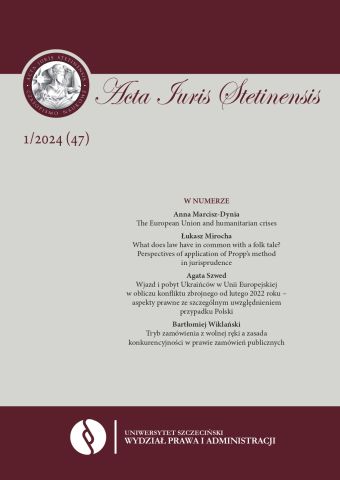Ulga na dzieci – analiza konstrukcji prawnej oraz przegląd orzecznictwa sądowego
The child tax credit as an example of the state’s family policy
Author(s): Paweł Mańczyk, Dominika WróblewskaSubject(s): Politics / Political Sciences, Politics, Law, Constitution, Jurisprudence, Constitutional Law, Human Rights and Humanitarian Law, Public Law, Administrative Law
Published by: Wydawnictwo Naukowe Uniwersytetu Szczecińskiego
Keywords: Personal Income Tax; tax; stimulation of demographic growth
Summary/Abstract: The child tax credit is a tax relief under the Polish Personal Income Tax system. The purpose of this paper is to present this tax preference. Authors try to reach this objective by a detailed analysis of relevant legal provisions and jurisprudence. The main thesis of the article is that the child tax credit could have a positive impact on the birth rate in Poland provided that certain changes are introduced. In our conclusions we identify four shortcomings of the child tax credit:1) the child tax credit is available only for taxpayers who pay PIT on general terms; 2) the child tax credit for only one child depends on the income criterion which has not been indexed since 2013; 3) the value of the child tax credit is negligible and its amount has not changed since 2015; 4) taxpayers who care for unrelated, disabled and adult persons do not have the right to the child tax credit because of the tax authorities’ narrow understanding of the maintenance obligation. Authors formulate proposals for solutions of the said shortcomings. An analysis of legal acts, relevant literature and court decisions is the primary research method employed in this paper.
Journal: Acta Iuris Stetinensis
- Issue Year: 2024
- Issue No: 47 (1)
- Page Range: 43-61
- Page Count: 19
- Language: Polish

